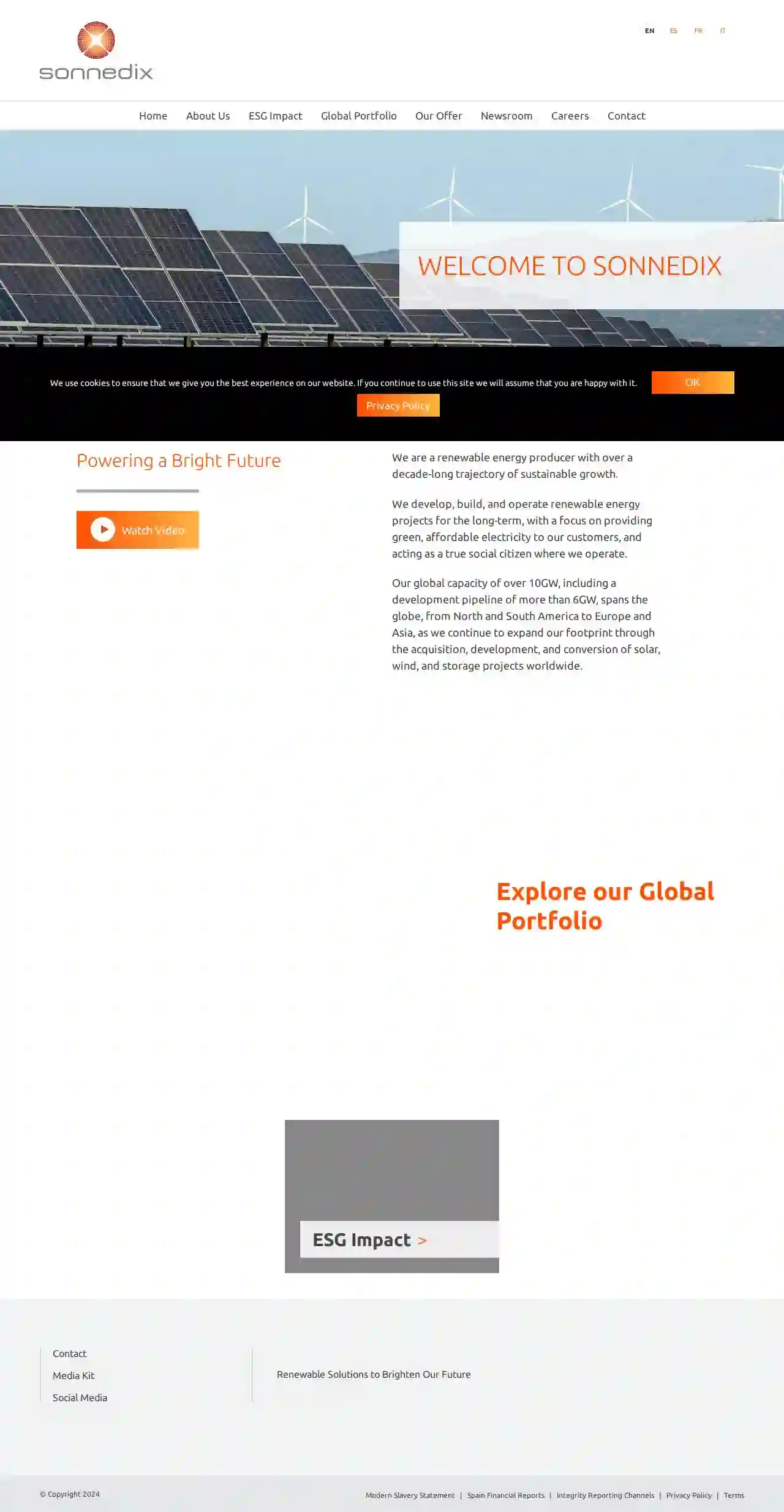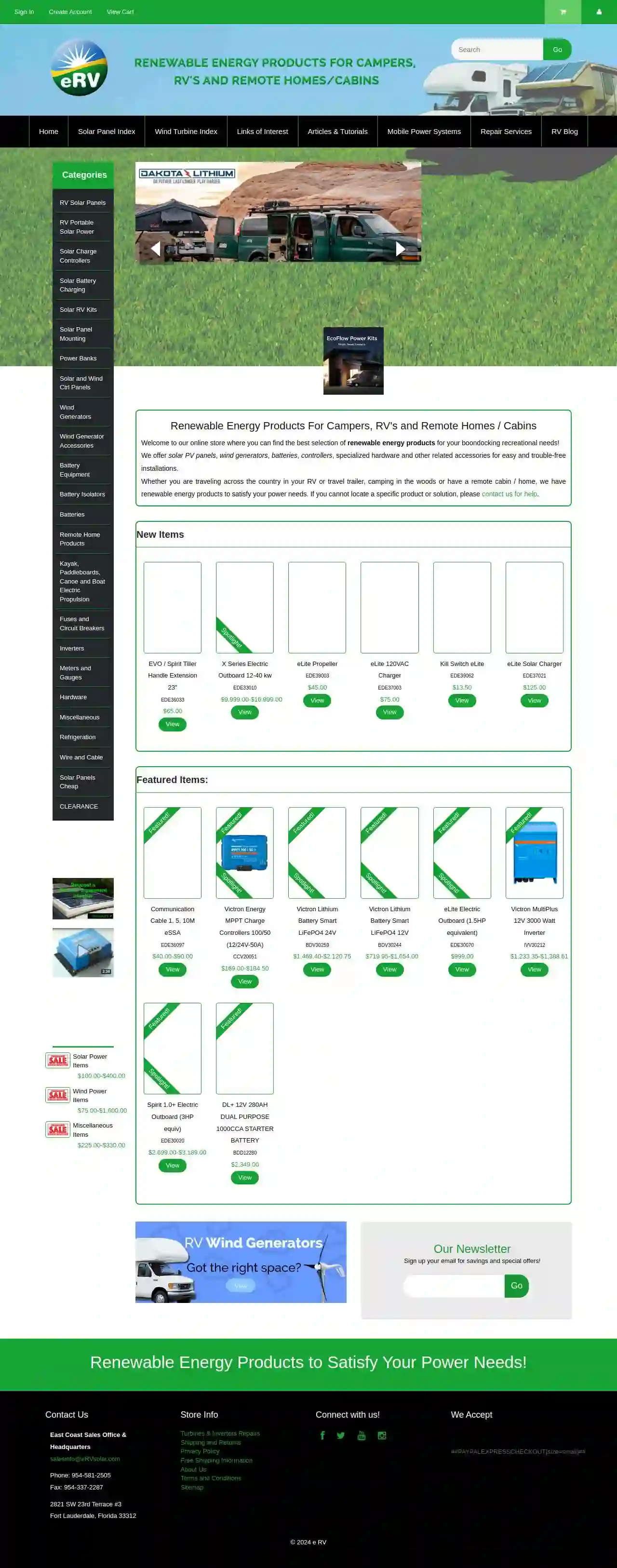Commercial Solar Installers Kissimmee
Best Solar Panels For Businesses in Kissimmee
Get 3 FREE Commercial Solar Installers quotes for your project today! Compare profiles, reviews, accreditations, portfolio, etc... and choose the best offer.

WattSun Solar and Roofing
4.9104 reviews2578 Clark St., Suite 5A, 2578 Clark St. Suite 5A, Apopka, 32703, USWattSun Solar and Roofing is a local, family-owned business dedicated to providing personalized and customer-centric solar and roofing solutions. With a vested interest in maintaining a strong reputation, we prioritize attentive service, tailored solutions, and ongoing support. Our team of experts is committed to exceeding expectations and building lasting relationships with our clients.
- Services
- Why Us?
- Accreditations
- Our Team
- Testimonials
- Gallery
Get Quote
Optimus Energy Solutions
4.69 reviewsMount Dora, FL, 1107 Robie Avenue, 32757, USOptimus Energy Solutions is a Florida-based company that specializes in providing renewable energy solutions, including residential and commercial solar installations, EV charging systems, and roofer resources. The company aims to make renewable energy accessible to individuals and businesses throughout Florida, Georgia, and the Southeast. With a combined 60+ years of project management, financial management, and construction management experience, the Optimus Energy Solutions team is dedicated to education and providing long-term system operation and investor satisfaction.
- Services
- Why Us?
- Accreditations
- Our Team
- Testimonials
- Gallery
Get Quote
American Solar Solutions
53 reviewsMiami, FL, 123 Solar Way, 33101, USAmerican Solar Solutions is a company that aims to revolutionize the way homeowners think about energy. They believe in the power of solar energy and its potential to save homeowners money while also contributing to a sustainable future. Their services include solar panels, energy-efficient appliances, smart home systems, and renewable energy solutions. They also offer energy storage solutions, insulation, and weatherization materials, as well as home energy audits. Their mission is to make a positive impact on their clients' lives and the environment.
- Services
- Why Us?
- Accreditations
- Our Team
- Testimonials
- Gallery
Get Quote
All American Solar
4.2142 reviews1060 E. Industrial Dr. Unit A, N/A, Orange City, 32763, USAll American Solar is a family owned and operated business providing quality residential solar and commercial solar installations to fit any home or business and any budget. They stand behind their products and services because they believe in them. They offer a variety of options to suit your needs, including solar attic fans, solar tube lights, radiant barrier insulation, salt cell chlorinators, LED home lighting, and more.
- Services
- Why Us?
- Accreditations
- Our Team
- Testimonials
- Gallery
Get Quote
Sonnedix USA Services Limited
53 reviewsMadrid, Spain, C/ Principe de Vergara 108, 28002, USSonnedix is a leading international renewable energy producer with over a decade-long trajectory of sustainable growth. They develop, build, and operate renewable energy projects for the long-term, focusing on providing green, affordable electricity to customers and acting as a true social citizen where they operate. Their global capacity of over 10GW spans the globe, from North and South America to Europe and Asia, as they continue to expand their footprint through the acquisition, development, and conversion of solar, wind, and storage projects worldwide.
- Services
- Why Us?
- Accreditations
- Our Team
- Testimonials
- Gallery
Get Quote
Sun City Solar
518 reviews123 Solar Way, Suite 100, Phoenix, 85001, USSunCitySolarPower is on a mission to make solar energy accessible and affordable for everyone. With over 10 years of experience in the solar installation industry, they have successfully completed over 500 installations and are committed to providing high-quality services to all their customers.
- Services
- Why Us?
- Accreditations
- Our Team
- Testimonials
- Gallery
Get Quote
DCL SOLAR LLC
56 reviews123 Solar Blvd, Fort Lauderdale, 33301, USDCL Solar LLC is a leading solar energy company based in Ft Lauderdale, Florida. With years of experience in the industry, we have built a reputation for delivering exceptional solar solutions to our customers. We are committed to providing the highest quality products, impeccable installation services, and ongoing support to ensure the long-term success of your solar panel system. Our team of skilled and certified technicians is dedicated to exceeding customer expectations and making the switch to solar a hassle-free process.
- Services
- Why Us?
- Accreditations
- Our Team
- Testimonials
- Gallery
Get Quote
eRV
32 reviews2821 SW 23rd Terrace, #3, 2821 SW 23rd Terrace #3, Fort Lauderdale, 33312, USWelcome to our online store where you can find the best selection of renewable energy products for your boondocking recreational needs! We offer solar PV panels, wind generators, batteries, controllers, specialized hardware and other related accessories for easy and trouble-free installations. Whether you are traveling across the country in your RV or travel trailer, camping in the woods or have a remote cabin / home, we have renewable energy products to satisfy your power needs. If you cannot locate a specific product or solution, please contact us for help.
- Services
- Why Us?
- Accreditations
- Our Team
- Testimonials
- Gallery
Get Quote
Solar Prime Usa
4.938 reviews2115 Hollywood Blvd Suite 203, Hollywood, 33020, USSolar Prime USA is a leading solar panel installation company in Florida, dedicated to providing high-quality solar services to homeowners. With a focus on sustainability and energy savings, they offer a range of solutions including solar installation, financing, battery backup, and roofing services. Their commitment to customer satisfaction and environmental responsibility sets them apart as one of the best solar companies in the area.
- Services
- Why Us?
- Accreditations
- Our Team
- Testimonials
- Gallery
Get Quote
Everything Solar
4.883 reviewsOrlando, FL, Central Florida, 123 Solar Way, 32801, USEverything Solar is a leading provider of solar energy solutions in Orlando and Central Florida. With over 25 years of experience in installing solar panels, they offer a range of services including solar panel installation, inverter installation, solar panel maintenance, and system monitoring. Their team of experts will assess your property and energy consumption to propose the best solar design that can maximize your investment. They use high-quality German-made solar panels that can last for years and years to come. Everything Solar also offers solar removal and reinstall services for existing systems prior to roof replacement.
- Services
- Why Us?
- Accreditations
- Our Team
- Testimonials
- Gallery
Get Quote
Over 4,210+ Solar Businesses in our network
Our solar pros operate in Kissimmee and surrounding areas!
SolarCompaniesHub has curated and vetted the Best Solar Companies in Kissimmee. Find a top & reliable pro today.
Frequently Asked Questions About Commercial Solar Installations
- System Cost: The total upfront cost of the system, including panels, inverters, installation, permitting, and other expenses.
- Energy Savings: The estimated annual savings on your electricity bill based on the projected energy production of the system.
- Incentives and Rebates: Include any applicable tax credits, rebates, or other financial incentives that reduce the net cost of the system.
- Depreciation: Factor in the depreciation value of the system over time, which can reduce your tax liability.
- Maintenance Costs: Estimate the annual maintenance costs for your solar system.
- Electricity Rate Inflation: Consider the potential increase in electricity rates over time, which will amplify your energy savings from solar.
- Uses high-quality mounting hardware
- Follows industry best practices
- Has a good understanding of roofing systems
- Qualified Installers: Ensure your installer has the necessary experience, training, and certifications to work safely on commercial roofs and with electrical systems.
- Fall Protection: Proper fall protection measures, such as harnesses and safety lines, must be used when working on roofs to prevent falls.
- Electrical Safety: Solar panels generate electricity, so proper wiring, grounding, and safety disconnects are crucial to prevent electrical shock or fire hazards.
- Fire Safety: Solar panel systems are designed to be fire-resistant, but it's essential to choose reputable brands with appropriate fire ratings and to ensure proper installation to minimize fire risks.
- Permitting and Inspections: Obtaining permits and undergoing inspections by local authorities helps ensure the installation meets safety codes and standards.
- Ongoing Maintenance: Regular maintenance checks by qualified professionals help identify potential safety issues and ensure the system remains safe and operational.
How do I calculate the ROI of my commercial solar investment?
What happens to my commercial solar system during a power outage?
Will solar panels affect my roof warranty?
What safety considerations are involved in commercial solar installations?
How do I calculate the ROI of my commercial solar investment?
- System Cost: The total upfront cost of the system, including panels, inverters, installation, permitting, and other expenses.
- Energy Savings: The estimated annual savings on your electricity bill based on the projected energy production of the system.
- Incentives and Rebates: Include any applicable tax credits, rebates, or other financial incentives that reduce the net cost of the system.
- Depreciation: Factor in the depreciation value of the system over time, which can reduce your tax liability.
- Maintenance Costs: Estimate the annual maintenance costs for your solar system.
- Electricity Rate Inflation: Consider the potential increase in electricity rates over time, which will amplify your energy savings from solar.
What happens to my commercial solar system during a power outage?
Will solar panels affect my roof warranty?
- Uses high-quality mounting hardware
- Follows industry best practices
- Has a good understanding of roofing systems
What safety considerations are involved in commercial solar installations?
- Qualified Installers: Ensure your installer has the necessary experience, training, and certifications to work safely on commercial roofs and with electrical systems.
- Fall Protection: Proper fall protection measures, such as harnesses and safety lines, must be used when working on roofs to prevent falls.
- Electrical Safety: Solar panels generate electricity, so proper wiring, grounding, and safety disconnects are crucial to prevent electrical shock or fire hazards.
- Fire Safety: Solar panel systems are designed to be fire-resistant, but it's essential to choose reputable brands with appropriate fire ratings and to ensure proper installation to minimize fire risks.
- Permitting and Inspections: Obtaining permits and undergoing inspections by local authorities helps ensure the installation meets safety codes and standards.
- Ongoing Maintenance: Regular maintenance checks by qualified professionals help identify potential safety issues and ensure the system remains safe and operational.